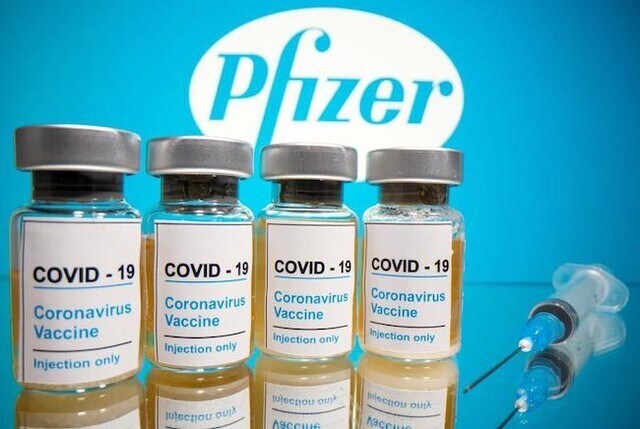Canada’s health agency has officially approved the country’s first vaccine against COVID-19, opening the door for the first wave of immunizations next week.
Health Canada issued its decision on the Pfizer and BioNTech vaccine Wednesday morning, making it the third country in the world after the United Kingdom and Bahrain to green light the vaccine.
"Canadians can feel confident that the review process was rigorous and that we have strong monitoring systems in place. Health Canada and the Public Health Agency of Canada will closely monitor the safety of the vaccine once it is on the market and will not hesitate to take action if any safety concerns are identified," a statement from the department said.
The company has contracts with the Canadian government to provide up to 249,000 early doses in December, four million doses by March and has the option to buy 56 million more.
British Columbia is set to receive its first 4,000 doses of the Pfizer-BioNTech vaccine by the end of next week, said Premier John Horgan in a tweet Tuesday afternoon.
In the Dec. 8 tweet, Horgan wrote the doses would be reserved for “high-risk people in BC,” adding further details will be provided Wednesday in conjunction with provincial health officer Dr. Bonnie Henry and Health Minister Adrian Dix.
The Health Canada approval of the Pfizer-BioNTech vaccine comes with several conditions, including that the company provide “further data on the long-term safety and effectiveness of the drug” as well as quality control data in the manufacturing process.
Pfizer’s vaccine is the first rigorously tested COVID-19 vaccine to be approved in the world after the United Kingdom authorized its use and began inoculating its first patients Tuesday, Dec. 8.
The U.K. warned that two people had severe allergic reactions on the first day of vaccinations, an issue that had not arisen in clinical trials with more than 44,000 people. The reactions are being investigated and the U.K. has asked people who are prone to severe allergic reactions to not get the vaccine for now. The two patients are recovering well, according to British authorities.
But Health Canada determined Pfizer’s Risk Management Plan was “acceptable.” The plan, which includes a vaccine safety profile, plans for further study on its safety and effectiveness, and how measures to minimize risk will be determined effective, is a necessary step when ever a company applies for a vaccine authorization.
In recent days, questions have also been raised around how the vaccine will arrive in Canada after U.S. President Donald Trump moved to sign an executive order banning its early export.
In a call with reporters Tuesday morning, Canada’s Minister for Intergovernmental Affairs Dominic Leblanc noted the contract with Pfizer considered access to the vaccine from both its U.S. and European manufacturing facilities.
“Deliberately, in the contracts themselves, we contemplated having access to production facilities on more than one continent,” said Leblanc. “We’re also confident that the contractual obligations with Pfizer and other vaccine makers will be respected.”
“We’re not concerned.”
The U.S. Food and Drug Administration, meanwhile, is scheduled to rule on the safety and efficacy of the Pfizer vaccine Dec. 10
— With files from the Canadian Press



